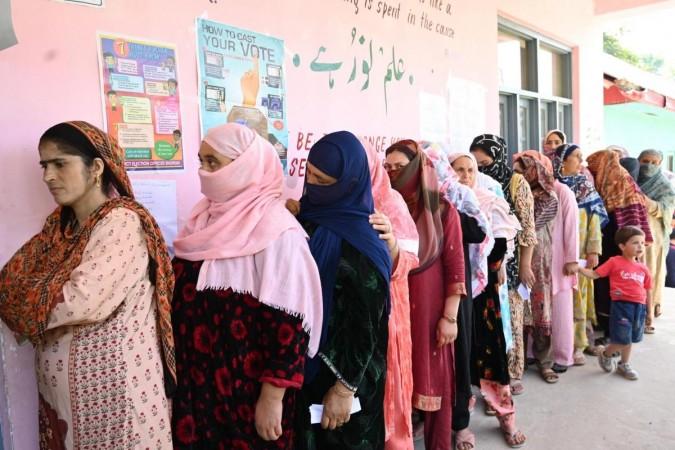
A total of 23.27 lakh voters will decide the fate of 219 candidates of 24 segments during the first phase of Assembly elections in Jammu and Kashmir to be held on Wednesday. Election personnel have been dispatched to 3,276 polling stations across seven districts, including Anantnag, Pulwama, Shopian, Kulgam, Doda, Ramban, and Kishtwar.
Out of the 3,276 polling stations, 302 are in urban areas, while 2,974 are located in rural regions. Each polling station will have four staff members, including a Presiding Officer. In total, more than 14,000 polling personnel will be deployed to manage the voting process.
Every Vote Matters! #ReadyToVote
— Election Commission of India (@ECISVEEP) September 17, 2024
Braving rugged terrains, our polling teams are reaching polling stations in #Kishtwar district, AC 50 Paddar Nagaseni.#VoiceYourChoice #ECI #JammuKashmirElections2024 pic.twitter.com/Lfl0bryCcR
Voter Demographics
The electorate for the first phase consists of 23.27 lakh eligible voters, including 11.76 lakh male voters, 11.51 lakh female voters, and 60 third-gender electors. The phase also includes 1.23 lakh youth voters aged 18-19, 28,309 Persons with Disabilities (PwDs), and 15,774 elderly voters over the age of 85.
Voting Schedule and Mock Polls
Voting will be conducted from 7:00 AM to 6:00 PM. Prior to the actual voting, a mock poll will be held at each polling station in the presence of polling agents to test the systems.
If voters are still in line at 6:00 PM, voting will continue until everyone has cast their ballot.
Polling stations will be equipped with essential amenities such as drinking water, electricity, restrooms, ramps, furniture, and verandahs or sheds. Wheelchairs will also be provided for those in need. For visually impaired voters, the ballot units will include a list of candidates in Braille script. Special queues will be set up for senior citizens and persons with disabilities.

Special Polling Stations
There will be 24 Pink Polling Stations managed by women, 24 polling stations staffed by specially-abled individuals, and 24 managed by young volunteers. Additionally, 24 green polling stations have been set up to raise awareness about environmental issues, and 17 unique polling stations are aimed at encouraging participation from specific sections of society.
Voter Information Slips and Identification
Voter information slips have been distributed to all voters to assist in identification. These slips, however, will not be accepted as proof of identity. Voters must present one of 12 acceptable identification documents, including Aadhaar cards, passports, driving licenses, and PAN cards, among others.
Technology and Monitoring
All polling stations will be equipped with live webcasting to monitor proceedings from control rooms in district headquarters and the Chief Electoral Officer's office. In communication shadow areas, alternative arrangements like satellite phones and wireless sets will ensure communication continuity. Vehicles used for election purposes will be tracked via GPS.
Seizures and Expenditure Monitoring
From the start of the election period, authorities have seized cash, liquor, drugs, and other items worth Rs 123.45 crore across the Union Territory. This includes significant seizures made by police, excise departments, and tax authorities.
The silence period for Phase 1 elections began on September 16, 48 hours before polling. During this period, all public campaigning is prohibited to allow voters a peaceful environment to make informed decisions.
Migrant Voters and Special Arrangements
Special polling stations have been established for migrant voters from the Kashmir Division, with 19 in Jammu, four in Delhi, and one in Udhampur. These stations will provide the same facilities as regular polling stations.
The Chief Electoral Officer has urged all eligible voters to participate actively in the democratic process and exercise their right to vote, emphasizing that all necessary arrangements have been made for a smooth and inclusive election.

















